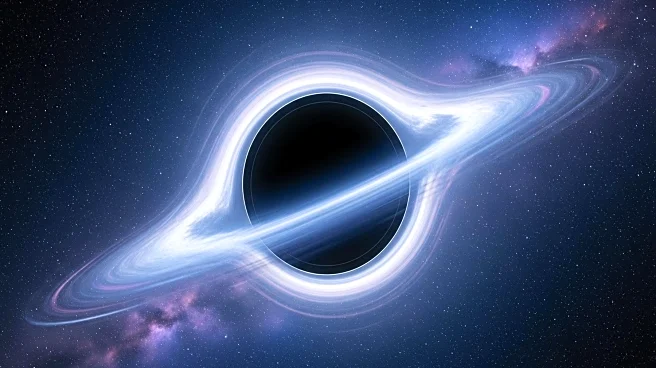What is the story about?
What's Happening?
Christopher Nolan's 2014 film 'Interstellar' is renowned for its scientific accuracy, particularly in its portrayal of black holes. The film follows former NASA pilot Cooper, played by Matthew McConaughey, as he embarks on a mission to find a new habitable planet for humanity. The depiction of black holes in the film has been praised by scientists, including astrophysicist Erin Macdonald, who discusses the film's scientific elements on NPR's Short Wave podcast. The podcast episode explores the film's representation of space-time and wormholes.
Why It's Important?
The accurate depiction of black holes in 'Interstellar' has contributed to public understanding of complex astrophysical concepts. By integrating scientific accuracy into mainstream entertainment, the film has sparked interest in space science and inspired discussions about the universe's mysteries. This intersection of science and cinema highlights the potential for films to educate and engage audiences on scientific topics.
What's Next?
The success of 'Interstellar' may encourage filmmakers to prioritize scientific accuracy in future science fiction projects. This trend could lead to collaborations between filmmakers and scientists to ensure realistic portrayals of scientific phenomena. Additionally, the film's impact may inspire educational initiatives that use popular media to teach complex scientific concepts.
Beyond the Headlines
The film's portrayal of black holes raises questions about the ethical responsibilities of filmmakers in representing scientific concepts. Accurate depictions can enhance public understanding, but inaccuracies may lead to misconceptions. The collaboration between scientists and filmmakers could set a precedent for responsible storytelling in science fiction.
















